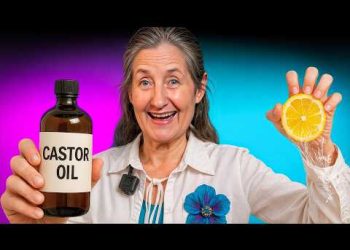Understanding the Misconceptions About Cholesterol
In the realm of heart health, cholesterol has long been a buzzword, often associated with danger. However, as Barbara O’Neill explains, there’s more to the story. Statin drugs like Crestor and Lipitor are frequently prescribed to lower cholesterol and prevent heart attacks, yet research does not conclusively show they prevent heart disease. Alarmingly, these medications have side effects, including muscle wasting, memory loss, dementia, and even breast cancer. It’s crucial to strike a balance, as both too high and too low cholesterol levels can be detrimental, affecting hormone production and vitamin D synthesis.
The Danger Hidden in Convenience: Ultra-Processed Foods
Our fast-paced world drives many to reach for ultra-processed foods without considering their health implications. Shockingly, 70% of adults regularly consume these foods, which are linked to obesity, heart disease, and diabetes. The unhealthy fats, sugars, and additives disrupt natural bodily processes. Identifying and avoiding these foods while opting for healthier alternatives is essential for better health.
Wheat Woes: The Impact of Modern Wheat on Health
The process of hybridization has transformed wheat, turning it into something harder for our bodies to digest. This hybridized wheat contributes to gluten intolerances and sensitivities, manifesting in symptoms like bloating and fatigue. Exploring alternatives such as ancient grains like spelt or making sourdough bread can provide relief, as these options are often easier to digest.
The Sweet Truth About Refined Sugar
Refined sugar, a staple in many households, poses a significant health risk. It provides empty calories, leading to weight gain and potentially contributing to chronic diseases, including type 2 diabetes. Its impact extends to heart health, with high sugar intakes linked to increased heart disease risk. Substituting refined sugar with natural sweeteners like honey can effectively reduce these risks.
Salt: A Balancing Act for Heart Health
Salt is essential, but not all forms are equal. Table salt, often bleached and mixed with additives like aluminum, can be hazardous. High sodium intake raises blood pressure and strains kidneys, risking heart and kidney disease. Balancing potassium intake from fruits and vegetables with moderate salt use is crucial for maintaining healthy blood pressure levels.
@bO’Neill
Tobacco’s Impact on Heart and Health
Smoking is a leading preventable cause of death globally, severely impacting cardiovascular health. Nicotine in tobacco raises heart rate and blood pressure, straining the heart and promoting artery damage. The reduced oxygen levels in the blood and weakened immune system further harm long-term health, underscoring the importance of quitting smoking for heart health.
Caffeine: Friend or Foe?
While commonly perceived as a harmless pick-me-up, caffeine, when consumed excessively, produces adverse effects. Elevated heart rates, increased blood pressure, and mood swings are potential risks of overconsumption. Dependency issues and sleep disruption can arise, thereby affecting overall heart health.
The Interconnection of Lifestyle Choices
Both tobacco and caffeine influence broader lifestyle habits. Smokers and those reliant on caffeinated drinks often neglect proper nutrition and exercise, compounding the risk factors for heart disease. Recognizing these influences and making informed choices is vital for maintaining heart health.
Emphasizing Healthier Choices for a Healthier Heart
Realizing the importance of dietary and lifestyle choices is the first step in a healthier life. Prioritizing whole, nutrient-dense foods while avoiding processed, sugary, and high-sodium items sets a foundation for better heart health. Encouraging awareness and education around these topics can lead to improved personal and community health outcomes.
Conclusion
Invest in your heart’s health by being mindful of what you consume and the lifestyle you lead. Understanding the science behind food and its effects on the body empowers better choices and ultimately leads to happier, healthier lives. Stay informed and take proactive steps toward a heart-conscious future.











